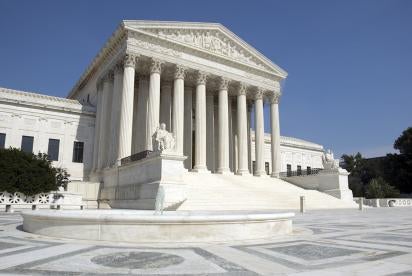Last week, the US Supreme Court issued two rulings that affect a limited class of employers facing claims of discrimination.
First, in Our Lady of Guadalupe School v. Morrissey-Berru, the Court interpreted the scope of its previously recognized “ministerial exception” in two cases concerning alleged age and disability discrimination. That exception, grounded in the First Amendment, protects the right of employers with religious missions “to decide for themselves, free from state interference, matters of church government as well as those of faith and doctrine.”
Rejecting a narrow approach taken by the Ninth Circuit, the Court held that the “ministerial exception” applies to a broad class of employees of employers with religious missions, including low-level teachers in religious schools who do not have extensive religious training or ministerial backgrounds. To determine whether the exception applies, the central inquiry is the extent to which an employee of an employer with a religious mission — in this case, a teacher in a Catholic school — is “entrusted with the responsibility” of educating and forming, in this case, the school’s students in their faith.
Next, in Little Sisters of the Poor Saints Peter and Paul Home v. Pennsylvania, the Supreme Court reviewed the validity of two regulations exempting employers with “sincerely held religious beliefs” or “sincerely held moral objections” from complying with other regulations issued under the Affordable Care Act that require health insurance plans to cover all contraceptive methods, namely, birth control, that are approved by the Food and Drug Administration.
Though the Court reached a different conclusion in the face of a similar challenge to regulations impacting the immigration status of so-called Dreamers, in this decision, the Court held that the two regulations at issue were procedurally proper. The Court rejected claims, with which the Third Circuit had agreed, that the two challenged regulations were enacted without proper authorization by the federal agencies that issued them, and that they were enacted without compliance with public notice and comment rules.
The key takeaway is that, through these two decisions, the Court strengthened legal protections that shield religious institutions and employers with sincerely held religious beliefs from job discrimination lawsuits.




 i
i


